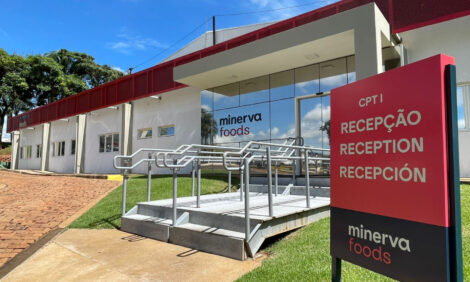



Irish Beef-Quest research project aims to reduce age of cattle finishing
The Teagasc-led project aims to improve lifetime performance in cattleReducing the average finishing age of Ireland's ‘prime’ beef cattle population to 22–23 months of age by 2030 is one of the main greenhouse gas (GHG) mitigation strategies for the Irish beef sector. Earlier finishing of beef cattle, not only has the potential to decrease the quantity of GHG emissions an animal emits over their lifetime, but can be economically advantageous, by lowering total costs associated with rearing an animal, and thus is a key contributor to on-farm profitability.
Understanding the large variation in the lifetime animal performance on Irish beef cattle farms, is a key focus of the Teagasc-led Beef-Quest project, recently funded by the Department of Agriculture, Food and the Marine (DAFM), according to a news release from the research institute. In collaboration with ICBF and UCD, this project, will use data currently available within the industry to map the lifetime live weight gain performance of the national beef herd.
Martin Heydon, minister of state at the Department of Agriculture, Food and the Marine, reviewed some of the initial results, from the national data sets, which were presented at the live cattle finishing demonstrations at the Teagasc BEEF2024 Open Day in Grange.
“To expedite a reduction in finishing age of cattle, there is an urgent need to identify and quantify the key factors currently impeding Irish beef farms from achieving potential live weight targets," Heydon said. "The potential has been highlighted from what is being achieved on high-performing grass-based commercial and beef research farms. The Beef-Quest project, funded by my Department, will make an important contribution to advancing our knowledge on how we can further reduce age of cattle finishing."
“Since 2010, the average finishing age of the Irish prime beef cattle population has reduced by around 2 months, with minimal negative impact on average carcass weight," added Teagasc researcher Paul Smith. "For example, the average finishing age of suckler-bred steers has reduced by about 1 week per annum with a slight increase in average carcass weight."
Farmers sought for Beef Quest project
As part of the Beef-Quest project, a new large-scale on-farm study is planned that will aim to generate new data to investigate the effect of nutrition, health and on-farm environment on the lifetime live weight gain performance of cattle on commercial beef farms. Data generated from the project, will be utilised to determine both the environmental and economic benefits associated with the optimisation of animal nutrition, health and on-farm environment, and subsequently aid the identification of the most effective on-farm measures for reducing the finishing age of Irish beef cattle.
Expressions of interest from both suckler and dairy-beef farms interested in participating in the Beef-Quest project are currently being sought. Benefits for signing up to the project include free live weight recording of growing cattle, forage analysis as well benchmark reporting of your farms performance with that of other farms within the programme. Regular live weight recording of growing cattle is the only way to accurately monitor the live weight gain performance of growing cattle, so why not avail of free live weight recordings as part of the Beef-Quest project.



